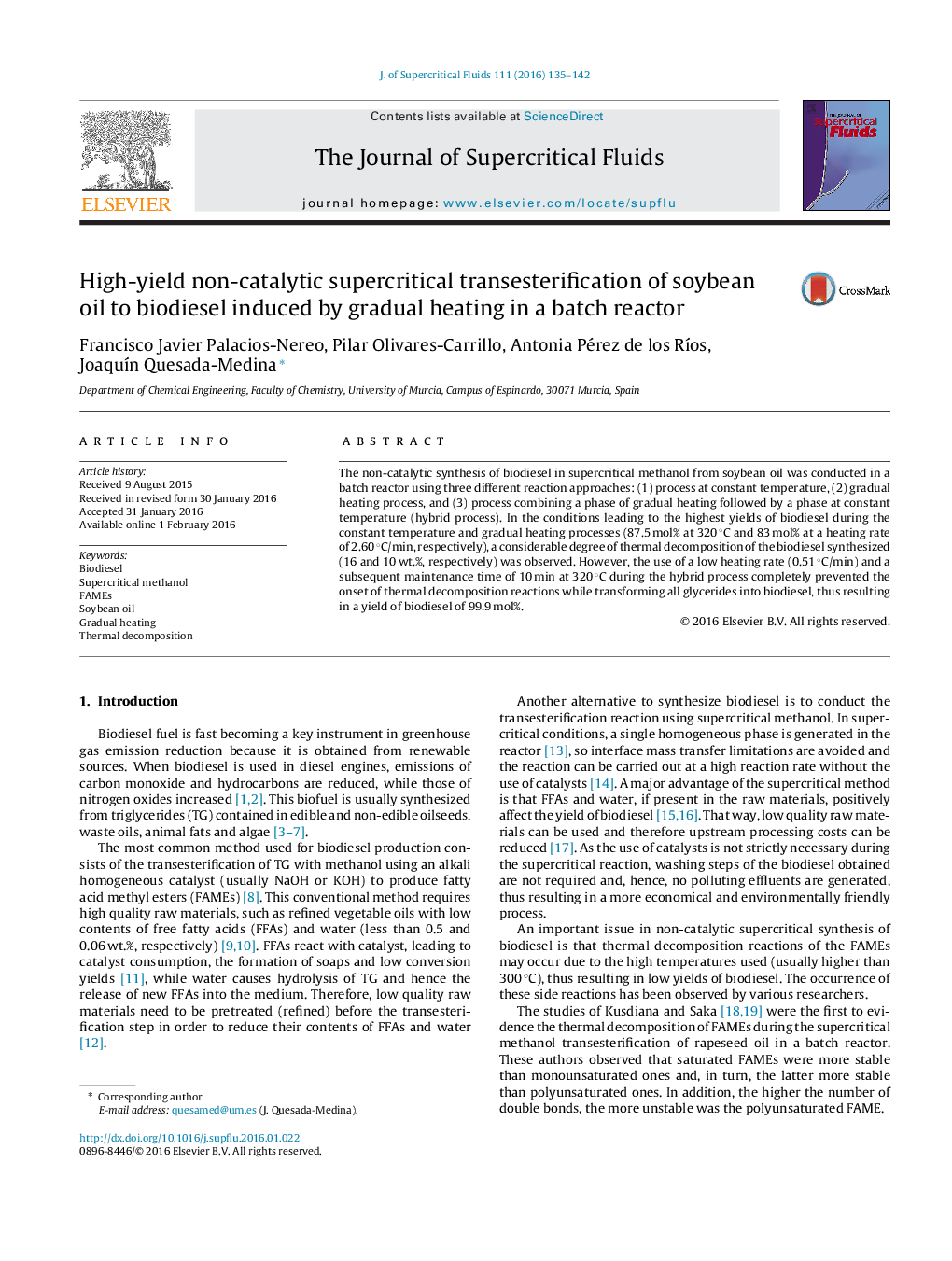| Article ID | Journal | Published Year | Pages | File Type |
|---|---|---|---|---|
| 230096 | The Journal of Supercritical Fluids | 2016 | 8 Pages |
•Constant temperature, gradual heating and hybrid reaction processes were evaluated.•The constant temperature process for high FAME yield resulted in thermal decomposition.•The heating rate is a key parameter for high-yield supercritical biodiesel synthesis.•The degree of thermal decomposition of FAMEs decreased with decreasing heating rate.•A 99.9% yield of FAMEs was reached during a hybrid gradual heating reaction process.
The non-catalytic synthesis of biodiesel in supercritical methanol from soybean oil was conducted in a batch reactor using three different reaction approaches: (1) process at constant temperature, (2) gradual heating process, and (3) process combining a phase of gradual heating followed by a phase at constant temperature (hybrid process). In the conditions leading to the highest yields of biodiesel during the constant temperature and gradual heating processes (87.5 mol% at 320 °C and 83 mol% at a heating rate of 2.60 °C/min, respectively), a considerable degree of thermal decomposition of the biodiesel synthesized (16 and 10 wt.%, respectively) was observed. However, the use of a low heating rate (0.51 °C/min) and a subsequent maintenance time of 10 min at 320 °C during the hybrid process completely prevented the onset of thermal decomposition reactions while transforming all glycerides into biodiesel, thus resulting in a yield of biodiesel of 99.9 mol%.
Graphical abstractFigure optionsDownload full-size imageDownload as PowerPoint slide
